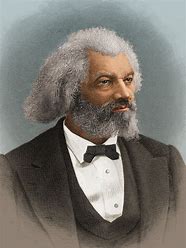Bishop Sharma Lewis has asked us to tell our stories about racism. Here’s mine.
—By Joseph L. Bass, EdD, Laity, Ebenezer UMC, Suffolk, Virginia; email ABetterSociety1@aol.com
Systematic racism is one of our major challenges in the United States. Having lived in South Central Los Angeles (I was there during the Rodney King riots), it is my view that few people understand the issue and its history.
In efforts to help people understand and formulate effective personal plans to help improve society I am in the process of writing a short ebook at www.ABetterSociety.Info. Right now, I have about one third of it completed and posted. It will take a few more months to complete the other two-thirds. But I think just reading what has been posted will help with people’s understandings of our current situation.
The following highlights might help.
First, racist thinking and values based on ethnicity and color of skin are ancient in human history. Class-based societies and slavery predated written history in all parts of the world. Rome was not built in a day, but it was built with slave labor. Ancestors of all people living today of all ethnicities and colors of skin have at one time or the other been slaves. When the Normans conquered the Anglo Saxons in 1066, they instituted serfdom over the conquered people. In England serfs were known as “villeins.” Queen Elizabeth I freed the last villein about 600 years later. The tide of European immigrants into the United States followed the end of serfdom in European nations.
Abolishment of slavery and the idea of a society based on equality-for-all are very new to human history and thinking. The United States of America was founded at a time in history when the two sets of values clashed: the ancient thinking involving slavery and equality-for-all.
Today we are experiencing the same ongoing struggle to create a society based on equality-for-all. We have made some progress. To understand where we are today it will help to read John Townsend Trowbridge’s The South. He documented his travels through the recent Confederate states just after the Civil War, recording the views held by the Rebel citizens. I suspect most will be shocked by the level of bigotry that existed only 154 years ago in places where today there are many Black and Hispanic elected city, state, and federal officials.
For additional understanding people might read the writings of Frederick Douglass. After escaping from slavery in Maryland he was surprised that wealth was not limited to the small aristocratic plantation owners as in the south where other whites were dirt poor. In the north regular folks had good jobs and were able to have a home and support a family (including Frederick Douglass).
Considering some of our current challenges people might read other Frederick Douglass writings. For example, he is known to have stated, “It is easier to build strong children than to repair broken men.” And we should consider his ideas on having the respect of others and self-respect as stated below.
Respect and Disrespect from Frederick Douglass

“One thought more before I leave this subject, and it is a thought I wish you all to lay to heart. Practice it yourselves and teach it to your children. It is this: neither we, nor any other people, will ever be respected till we respect ourselves, and we will never respect ourselves till we have the means to live respectably. An exceptionally poor and dependent people will be despised by the opulent and despise themselves.
“You cannot make an empty sack stand on end. A race which cannot save its earnings, which spends all it makes and goes in debt when it is sick, can never rise to the scale of civilization, no matter under that laws it may chance to be. Put us in Kansas or in Africa, and until we learn to save more than we spend, we are sure to sink and perish. It is not in the nature of things that we should be equally rich in this world’s goods. Some will be more successful than others and poverty, in many cases is the result of misfortune rather than of crime; but no race can afford to have all its members the victims of this misfortune, without being considered a worthless race. Pardon me, therefore, for urging upon you, my people, the importance of saving your earnings; of denying yourselves in the present, that you may have something in the future, of consuming less for yourselves that your children may have a start in life when you are gone.
“With money and property comes the means of knowledge and power. A poverty-stricken class will be an ignorant and despised class, and no amount of sentiment can make it otherwise. This part of our destiny is in our hands. Every dollar you lay up represents one day’s independence, one day of rest and security for the future. If the time shall ever come when we shall possess in the colored people of the United States, a class of men noted for enterprise, industry, economy, and success, we shall no longer have any trouble in the matter of civil and political rights. The battle against popular prejudice will have been won, and, in common with all other races and colors, we shall have an equal chance in the race of life.”
Frederick Douglass, The Most Complete Collection of His Written Works & Speeches, Original Copyright 1881, 1845-1895, 1855, 1845, Northpointe Classics, On Amazon Kindle Locations 8409 – 8421. and Life and Times of Frederick Douglass (1892)/Chapter 41 – On West India Emancipation
https://en.wikisource.org/wiki/Life_and_Times_of_Frederick_Douglass_(1892)/Chapter_41 Between 615 and 616
